Science & Society
Sign up for our newsletter
We summarize the week's scientific breakthroughs every Thursday.
-
 Health & Medicine
Health & Medicine‘It felt like dread.’ Hear what severe depression can do to people
In the second episode of The Deep End, listeners hear what it’s like to live with severe depression and the backstory of an experimental treatment.
-
 Science & Society
Science & Society‘Uncertain, anxious, fearful.’ That’s the mood at 2025’s first big U.S. science meeting
Scientists are losing funding and even their jobs under the new Trump administration. Researchers at the AAAS meeting shared fears and coping strategies.
-
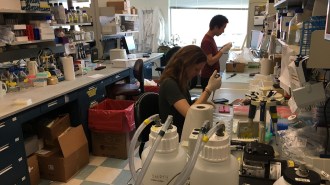 Health & Medicine
Health & MedicineNIH research grant cuts could deal a biting blow to crucial support staff
The funding agency aims to cap “indirect costs” in biomedical research grants. But this behind-the-scenes work is crucial to making research happen.
By McKenzie Prillaman and Alex Viveros -
 Climate
ClimateHistorical writings reveal how people weathered the Little Ice Age
Records from 500 years ago document floods, famine and death in 16th century Transylvania due to wild weather swings during the Little Ice Age.
By Alex Viveros -
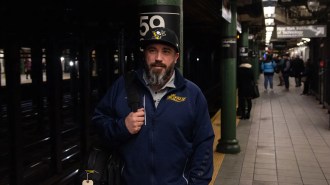 Health & Medicine
Health & MedicineA man volunteered to get brain implants for depression. Hear his story
In the first episode of The Deep End Podcast, we meet Jon Nelson, who shares why he volunteered to get brain implants for his relentless depression.
-
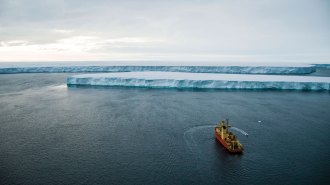 Climate
ClimateCan geoengineering plans save glaciers and slow sea level rise?
As climate change melts West Antarctica’s glaciers, scientists are proposing bold ideas to avoid devastating sea level rise. Will they work?
By Douglas Fox -
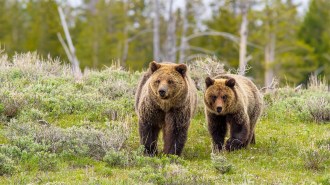 Science & Society
Science & SocietyWill the Endangered Species Act survive Trump?
President Trump has already begun to introduce changes that weaken the Endangered Species Act, a cornerstone of U.S. conservation law.
By Amanda Heidt -
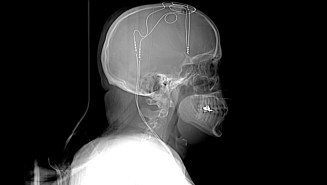 Health & Medicine
Health & MedicineWelcome to The Deep End, a new podcast about brain implants and depression
This new six-part podcast follows the lives of people with severe depression who volunteered for deep brain stimulation.
-
 Science & Society
Science & SocietyDo science dioramas still have a place in today’s museums?
Science dioramas of yesteryear can highlight the biases of the time. Exhibit experts are reimagining, annotating — and sometimes mothballing — the scenes.
By Amber Dance -
 Health & Medicine
Health & MedicineBetter male birth control is on the horizon
Men have two birth control options: condoms and vasectomies. Why has it taken so long to develop more contraceptives?
-
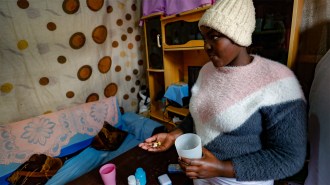 Science & Society
Science & SocietyTrump orders sow chaos in global public health
A recent flurry of executive orders and surprise actions by the Trump administration have roiled WHO, the CDC and the international public health community.
By Meghan Rosen -
 Health & Medicine
Health & MedicineCan you actually die of a broken heart?
Death by heartbreak doesn't just happen in stories. In real life, severe stress can cause the sometimes-fatal takotsubo syndrome.